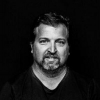
Virgin Media O2 launches summer online safety campaign
Virgin Media O2 and Internet Matters spotlight the importance of having conversations about online safety and starting them early

The dawn of a new decade is the perfect opportunity to call time on mindless predictions.

Predictions; so easy to make, yet so difficult to substantiate or gain meaningful long-term understanding from. At the dawn of the decade the annual flurry of predictions will doubtless be both fast and furious. Yet, will they be fruitful in any meaningful way beyond the turgid end of year headlines they generate?
In many ways the industry’s love for predictions mark a desire for absolutes in a world where the only real certainty is that we must become more comfortable with uncertainty.
A marketing buzzword can in effect create a narrative entirely divorced from the reality of the business ecosystem we are facing. How much easier is it to talk of disruption than the destruction of jobs that tech-led start-ups have ushered in with them.
With short-termism casting a long shadow across the creative industries perhaps we should be more mindful of the absolutism these predictions bring with them. With this in mind we have tried to steer away from the affliction of prediction by asking some of the brightest and best brains in our industry what worked and what didn’t and, at the dawn of a new decade, what they will be doing differently in 2020.
For while you can’t build your reputation on what you haven’t done yet, it’s all too easy to jump on the next trend without giving critical thought to what works in the long term.
If we can go into 2020 less busy but more creative, it might just be our industry’s most glorious year yet.
Bridget Angear

We live in a culture of busyness, surrounded by lots of stimuli that are driving us harder and faster all the time. A very busy schedule makes many of us feel good and important, so we become addicted to being busy. Even if we do leave the office, we don’t stop working. We are permanently connected to emails, we reply to texts, we take calls and we carry on working on that presentation we just need to finish off.
Not only does it make us feel good, research conducted by the Journal of Consumer Research revealed that the busier a person appeared, the more important they are deemed. Busyness now equates to perceived competence and ambition.
However, being busy all the time is a lot more dangerous than most of us think. Overworking can lead to health issues like impaired sleep, depression, heavy drinking, diabetes, impaired memory and heart disease. Not to mention that being at home physically but not mentally can pose a real threat to relationships. And research has shown that poor mental health kills creativity; the lifeblood of our industry.
It's not easy to break the habits of busyness but perhaps the Christmas break gives us all a chance to try. Take a look at the APG’s four disconnecting behaviours and give them a go over the festive period.
After all, if we can go into 2020 less busy but more creative, it might just be our industry’s most glorious year yet.

Starting a new year is always a great time for reflection. For me there are so many exciting things happening in the marketing and advertising industry right now but clear things we need to work harder at.
What has become a major theme and one that excites me the most is the focus on the customer and the right belief that the brand is the customer experience. More brands are waking up to this fact with marketers becoming increasingly involved in not just communicating but also delivering their brand on the ground too. It’s a key theme of the work we’ve been doing at TSB to truly deliver on our brand purpose.
And its brand purpose that is at the top of my frustration list. Too many organisations still haven’t discovered the power and importance of a purpose-led brand that truly and consistently lives and breathes what it stands for. In the highly competitive retail space for example this is vitally important as brands seek to avoid heavy discounting and commoditisation.
2020 will be an exciting year and the real winners will be those brands that truly deliver on their brand purpose and put customer experience centre stage.
We need to break down silos and we need to respect our differences of opinion and working styles.
Dani Bassil

The industry is definitely changing. How we think about our people and the type of work that we do is now more important than ever. What’s happening in society is reflective of what needs to change. The election in many ways is a macro view of where the world is heading. Do we continue to strive for individualism or come together as a society for its greater good?
Only time will tell on that. Business is no different. There are some companies who promote a culture of every woman, or man, for themselves, but that is not ours at Digitas. That is not the culture we will promote. We come together, we succeed together, and we fail together. Whether that’s for our agency itself or for our client’s business and work.
We need to break down silos and we need to respect our differences of opinion and working styles. We also need to understand what sort of environment we need to create to keep our talent motivated. There are so many factors to this, whether that is mental health or personal issues or things that personally matter.
Climate change, diversity, flexible working or helping our working mums and dads stay sane whilst balancing two pretty tough gigs. Our industry has led the way in so many things. We’ve created political movements and changed vernacular. Whilst we are making inroads for sure, we as an industry are still so focussed on billable hours and growth. Those things are obviously important, but we have nothing if we do not bring the best out in our people. For me they represent the best part of our industry, the thing that inspires me every day to get out of bed and strive for more. We are lucky we work in an environment where we are supported to strike for the climate, launch a flexible working initiative or take time off for mental health. Moving into 2020, we as an industry need to keep fighting to do better and be better, always.

Can I let you into a secret? Creative agencies haven't been paid on commission since about 1989. No, truly. You wouldn't know it from the way they behave however: deeply embedded in the muscle-memory of agency behaviour is the assumption that the only problems worth solving are those with a large media budget attached.
Yet, one of the few benefits of being paid by the hour is the fact that we no longer need to make ads to make money. Perhaps to the delight of management consultancies, we have entirely failed to make anything of this opportunity. And it is an enormous opportunity: for, while the supply of businesses with large media budgets will always be finite, the number of businesses which need to buy a mixture of human insight and creative problem-solving is virtually limitless.
I think we need to work harder at not trying to be all things to everyone.
John Treacy

As a restless bunch it’s really difficult to be happy with the status quo, to pat ourselves on the back with how well things are going, to congratulate ourselves on what’s ‘working’. Instead, I’ve been really thinking about what we need to work at. Here’s a few starters for 10.
I think we need to work harder at diversity and inclusion.
I think we need to work harder at attracting the best young talent into the industry.
I think we need to work harder at retaining the best of the wise old heads.
I think we need to work harder at producing meaningful insights that inform great work.
I think we need to work harder at selling and keeping great work sold.
I think we need to work harder at not being seduced by the latest technology.
I think we need to work harder at not trying to be all things to everyone.
I think we need to work harder at being confident in the value we bring our clients.
And most importantly, I think we need to work harder at doing all these things whilst not working harder.
Happy 2020.

It’s been a positive year for action on climate change, as businesses of all sizes have recognised that responding to the climate crisis isn’t policy or gestural, but something requiring a strategy that can in equal measure positively impact the world and build sustainable commercial growth. The Greta Effect and Extinction Rebellion have accelerated the sense of urgency for the C-Suite that a sustainability strategy is vital to the future of our planet and businesses’ performance, both for attracting and retaining talent and to win customers.
However, this shift in corporate mindset needs to translate into foundational product innovation communicated through meaningful, long-term creative ideas that engage with consumers emotionally, to develop meaningful relationships based on shared commitments and values. Given the global sense of paranoia and mistrust, what’s needed is strategically rigorous, creatively powerful ideas that foster progression and optimism. Now is not the time for self-serving one-off splurges. And this isn’t a mere ‘comms’ idea, this is a core brand platform which influences everything from corporate culture through to product or service innovation and customer experience. In 2020 we can, and must, do more to champion the strategic ideas that can and will change businesses.
All the evidence points to creativity being the source of effectiveness.
Stephen Maher

The latest tremor in the disruption of marketing is seemingly abating. The industry is rebuilding, shaping for a much-altered landscape where it needs to be better, faster and cheaper. The foundations of this new world are the tribally distinct, but ultimately symbiotic duality of creativity and technology, used in a broad sense, encompassing data. There are many examples where this approach is reaping rewards for the clients of agencies willing to embrace it.
The emergent businesses are in a variety of forms, with no clear winning formula. There’s the consultancy-acquisitions, the in-housing model, the global network restructures, and new agile groups and independents all jostling for primacy.
What will define the shape of the winners, and where the industry can work even harder, is the extent to which a creative and entrepreneurial culture is a vibrant part of the DNA. All the evidence points to creativity being the source of effectiveness. Creativity requires free thinking, unrestrained brains given license to roam. It needs the right cultural environment so brilliant talent can be brilliant and the emotive power and beauty of creativity can flourish alongside the skills to handle the wondrous opportunities offered by technology and data.

Advertising has long believed in the power of disruption. In fact, agencies have forever tried to convince clients to take risks on new ideas. But the ad industry itself is notoriously bad at embracing change. In part, it's because the industry is so inwardly focused. We spend so much time protecting what we do, and not enough time reinventing how we do it.
Creating a better future for ourselves means being able to envision something that doesn't currently exist, looking at what's around the corner, and creating something from scratch. And it will need to be in every agency's DNA if they want to succeed in 2020.
But not every agency can change its culture, and that's why new breed creative consultancies have the advantage. They don't have years of fat-cat bureaucracies to defend. They know how to foster critical connections between creativity and business, they know how to be agile, and they understand how to work collaboratively with their clients.
And while it may seem like a scary time for agencies to reinvent themselves, not doing so could mean a bleak year ahead. The good news though, is that there's plenty of transformation work to go around. That said, you need to start with yourself. Just remember that creativity is still the only sustainable way to differentiate your business.
Looks like you need to create a Creativebrief account to perform this action.
Create account Sign inLooks like you need to create a Creativebrief account to perform this action.
Create account Sign in